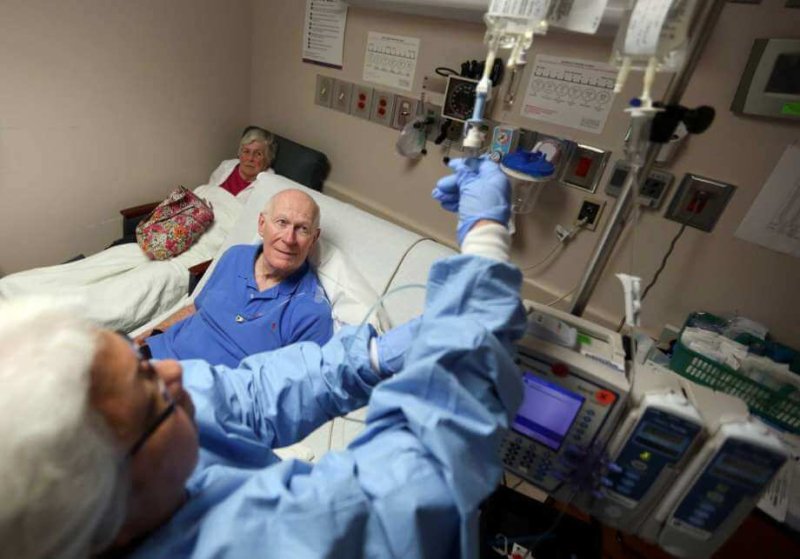Immunotherapy is a source of great hope in cancer care. It has rescued some patients from the brink, while giving others a reason to believe that they, too, could beat the long odds.
But these therapies are also creating a vexing dilemma for doctors: Their patients, citing television ads and media accounts of miraculous recoveries, are pushing hard to try them, even when there is little to no evidence the drugs will work for their particular cancer.
Doctors want to give their patients every shot at survival, but can they justify prescribing a drug when it hasn’t been tested for that patient’s type of cancer? Many of these treatments bring risks of painful — even life-threatening— side effects and carry total price tags pushing $1 million.
…
Precision medicine, and the use of genetic markers to predict the success of treatments, promises to help answer these questions. Scientists at Stanford, for example, engineered a radioactive molecule, detectable by PET imaging, to track whether a patient’s T cells are activated and thus capable of fighting cancer if the patient is given immunotherapy.
The technique worked in lab mice but has not yet been tried in human patients, and other such approaches are further off. Meanwhile, patients and doctors are left to make life and death treatment decisions on uncertain terrain.
Read full, original post: A new cancer care dilemma: Patients want immunotherapy even when evidence is lacking































